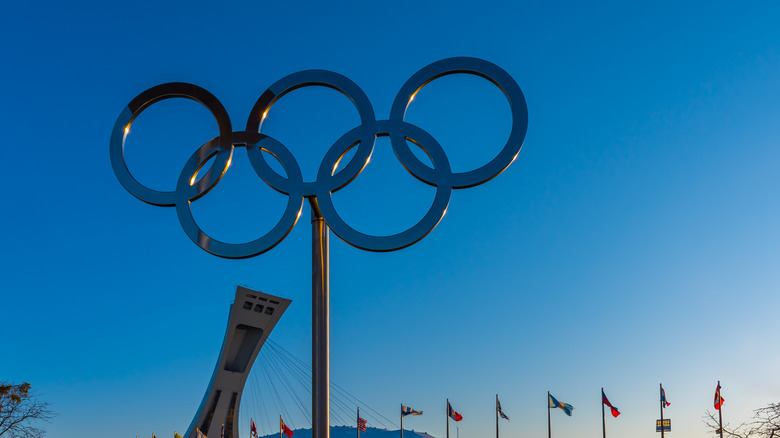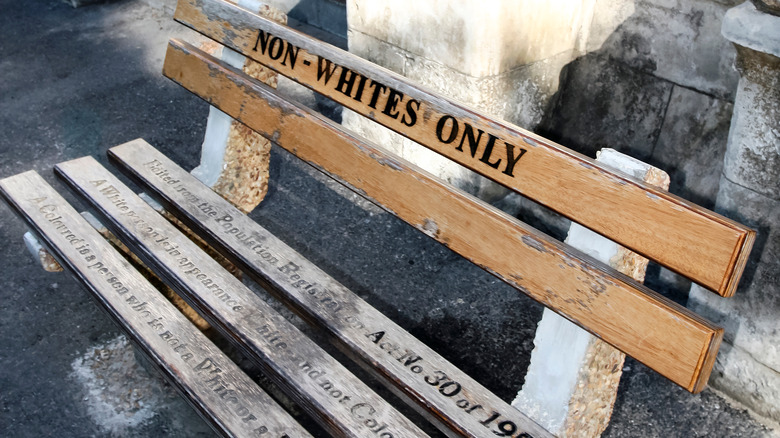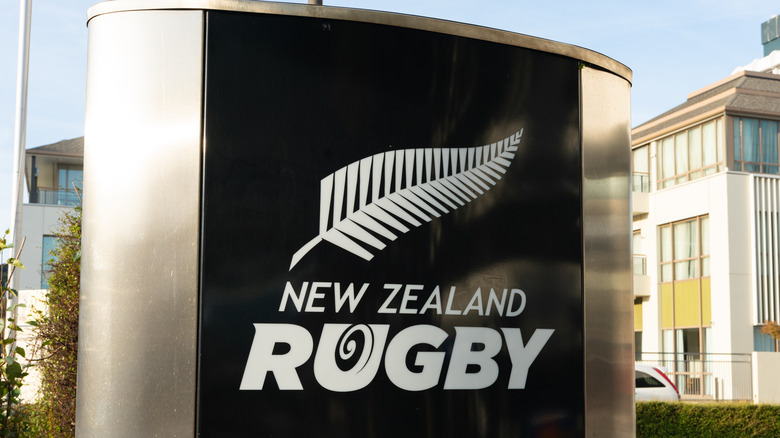Inside The African Boycott Of The 1976 Olympics
In 1976, as the Olympics were ramping up in Montreal, Quebec — mere days before the opening ceremonies — more than 30 teams simply packed up and went home. In some cases, players who were already competing in the primaries spontaneously quit, throwing the schedules into chaos (via the Montreal Gazette). The whole thing resulted in a hobbled Olympics, particularly in the track and field competition, which had to get by without the star athletes from Tanzania and Kenya. Lost revenue was estimated at $1 million Canadian, as tickets and hotel rooms had to be refunded.
What happened? The short answer is "a boycott." The longer answer begins just after World War II and ends with South Africa's entire constitution being rewritten in the early 1990s. The 1976 African boycott of the Montreal Summer Olympics not only disrupted several sporting events, but went on to change the world as well.
It all starts with apartheid
To understand what brought about the 1976 Olympic boycott, you need to understand the historic South African policy of apartheid. In 1948, the far-right National Party gained control of the South African government and began enforcing a raft of racial policies that could best be described as "U.S.-style segregation on steroids." South Africa's white minority pushed the country's black majority onto reservations and seized 80% of the land (via History). Interracial interactions, including marriage and sex, were banned by law, and a rigid racial hierarchy was enforced.
It took the global community a while to react to these draconian measures, perhaps due in part to dealing with the aftermath of World War II. By the 1960s, however, many other countries began to coalesce around an informal athletic boycott of South Africa. In 1964, South Africa was barred from competing in the Olympic Games; by 1970, they had been expelled from the International Olympic Committee altogether (via The Atlantic). Even outside of the Olympics, though, most other countries refused to compete with South Africa.
New Zealand, however, was the exception. Its rugby team, somewhat ironically known as the All Blacks (after the colors of their uniforms), had been racially integrated from its beginnings, consisting mainly of a mix of white New Zealanders and native Maori players. Therefore, because of apartheid, the country was only able to send its white players on South African tours, a restriction to which it happily acquiesced.
How apartheid (and rugby) led to the boycott
This accommodation to South Africa's unconscionable laws was controversial in New Zealand, even before the 1976 boycott. In 1960, for example, a campaign collected 150,000 signatures on a petition to force the South African government to welcome the whole team (via Mental Floss). South Africa responded by granting nonwhite All Blacks "honorary white" status, but many were (understandably) not happy with the compromise.
In 1976, everything came to a head. On June 16, a mass protest of black students against changed education policies broke out; the South African government responded by massacring hundreds of protesting children. Two weeks later, though, the All Blacks once again began touring South Africa as if nothing had happened. Julius Nyerere, president of Tanzania, could not remain silent about the situation. If South Africa was excluded from the Olympics for their unconscionable behavior, he argued, New Zealand should be excluded as well for turning a blind eye to it (via BBC).
When the Olympic Committee balked at his demands, Nyerere called for a boycott, and his teams, along with more than 30 other countries, mainly black-controlled countries in central Africa, simply walked away and sat out the Olympics. The boycott was an unprecedented demonstration of Black African solidarity and brought new global attention to the inhumanity of apartheid, leading, eventually, to severe economic sanctions against South Africa by powerful governments like the United States and Great Britain. Eventually, in 1991, apartheid was finally dismantled. But it all started with an Olympic boycott.


